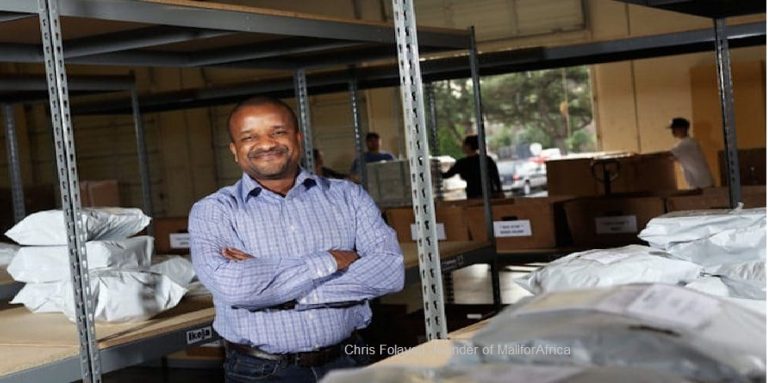
MallforAfrica is re-engineering the path of African shopping which has largely originated from America (and Europe) to Africa with a reverse path which begins from Africa into American and European homes. Yes, MallForAfrica is working with DHL to make it easier for artisans and makers within Africa to sell things to the world. They have created a web portal, MarketplaceAfrica.com, and introduced Africa Made Product Standards (AMPS). This partnership will cover fashion, body care, handbags, jewelry and home décor and the platform “will provide craftspeople and customers order verification, fast delivery, and shipment labeling and packaging services. Suitable delivery costs also keep products affordable”.
DHL, the world’s leading international express services provider, today announced its partnership with e-commerce giant, MallforAfrica’s new platform, Marketplace Africa, to help online retailers bring African-made products to the US and global market. The site offers items from the continent’s most talented designers and artisans from a variety of categories including fashion, body care, handbags, jewelry and home décor.
By providing this portal, MallforAfrica will fix one major friction which exists in African ecommerce: trust. Trust has been the major reason why African makers are isolated from the world. With this partnership, it would be easier for global buyers to shop from African makers and the items delivered to them by DHL. The system creates a kind of intermediation enabling the two elements (maker and buyer) to do business.

Until today, African craftspeople have been isolated from global customers due to distance, fear of not receiving overseas payments, and complex shipping requirements. Customers who wished to purchase products directly from African artisans faced obstacles regarding accessibility of items, authenticity and validation of the product, uncertainty of delivery, high delivery costs, and payment security.
The introduction of AMPS is a welcome development. I have noted the need of that in a piece on Aba leather industry. According to the press release, the AMPS will be used “to ensure that the highest quality products are being sold on the Marketplace Africa platform. It provides consumers with the assurance that products meet an international standard in quality. All products are crafted with the utmost care by an African artisan”. When product quality comes into the game, the most talented makers will reach more global markets. If AMPS advances, it would be all positive for artisans and markets across Africa.
Register for Tekedia Mini-MBA edition 19 (Feb 9 – May 2, 2026): big discounts for early bird.
Tekedia AI in Business Masterclass opens registrations.
Join Tekedia Capital Syndicate and co-invest in great global startups.
Register for Tekedia AI Lab: From Technical Design to Deployment (next edition begins Jan 24 2026).
A key element of the new system will be quality. The makers have to produce quality shoes and bags. delivering consistent quality which can be sold internationally. The brand owner will give them the specifications and then offer training to assist them do the job right. This will include better materials, use of Computer Aided Designs (CADs) and general automation to improve quality. Quality, defined by the brand owner, becomes the identify of that brand.
All Together
When they originally announced this partnership, I commended the vision. Africa needs a mechanism to ship items to U.S. and other global markets where some of our items are actually sought after. But our logistical challenges and payment infrastructures have hindered making such possible. This new platform is certainly a step in the right direction.
Of course, the complexity of the business has increased since it will start sourcing for opportunities in Africa with our infrastructure challenges. But this firm has developed and accumulated capabilities over the years. I do think it will manage the challenges of shipping from Africa to U.S. despite our logistical issues as it in-bounds items to DHL offices. Do not be surprised that they can appoint local firms to aggregate the sub-local supplies across cities. And just like that, MallforAfrica CEO Chris Folayan will focus on processing the invoices, counting the profits, with his usual smiles. People, treasure brilliance: this one is from home.
MallforAfrica will test its aggregation construct model at a deeper level with the aggregation of goods from within Africa to the world. It would not be that easy because of the lack of homogeneity in the African markets. Solutions have to be tailored for each community and scaling will struggle. Everything depends on unit economics and logistics: if the cost is manageable, the Americans, Europeans and the world would absorb all. The key element to look at is the marginal cost (which affects scalable advantage) of bringing these items at collation centers where DHL will pick before they would be shipped to the world. It is a big challenge, and if the team gets it right, they would lift the living standards of many families across African communities.
---
Connect via my
LinkedIn |
Facebook |
X |
TikTok |
Instagram |
YouTube


